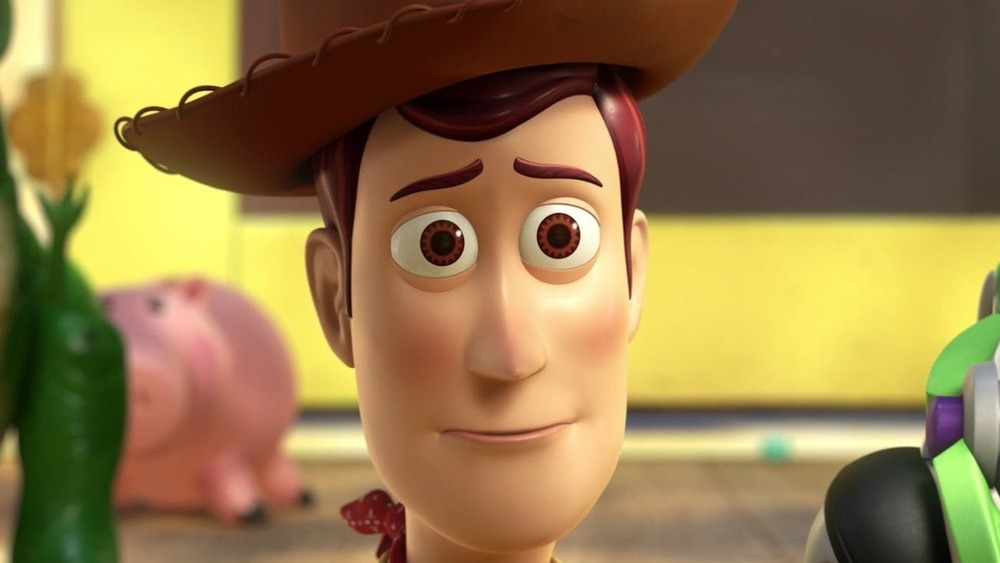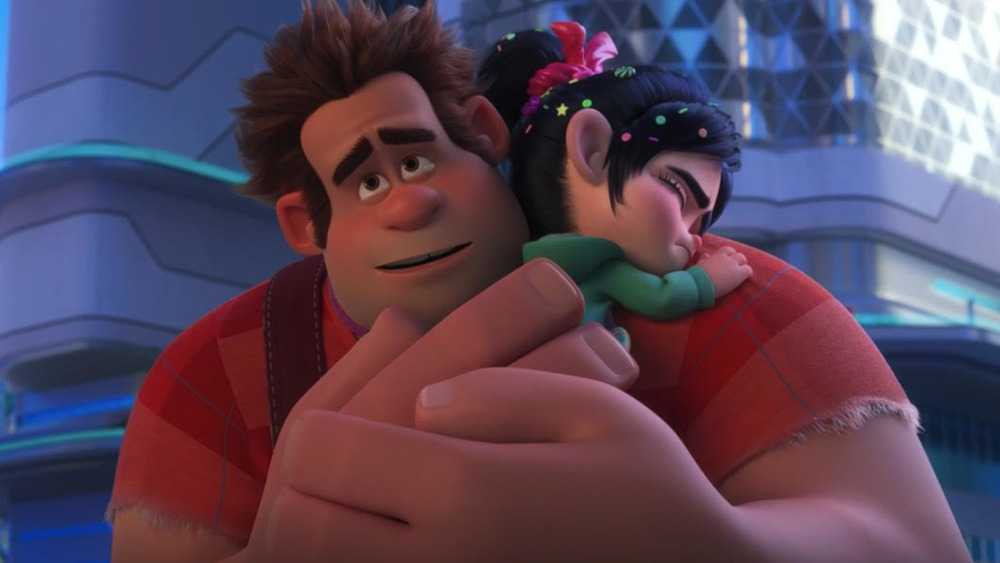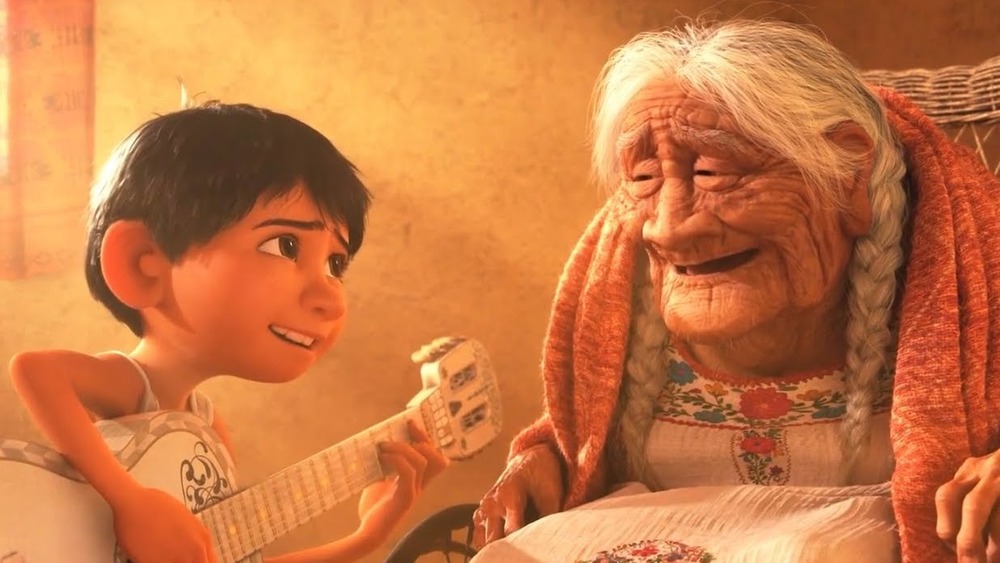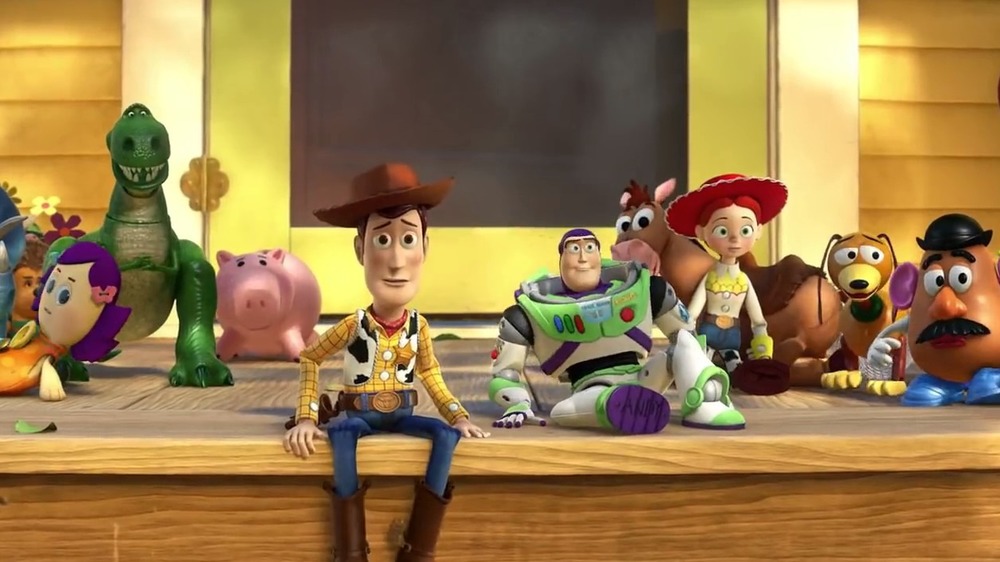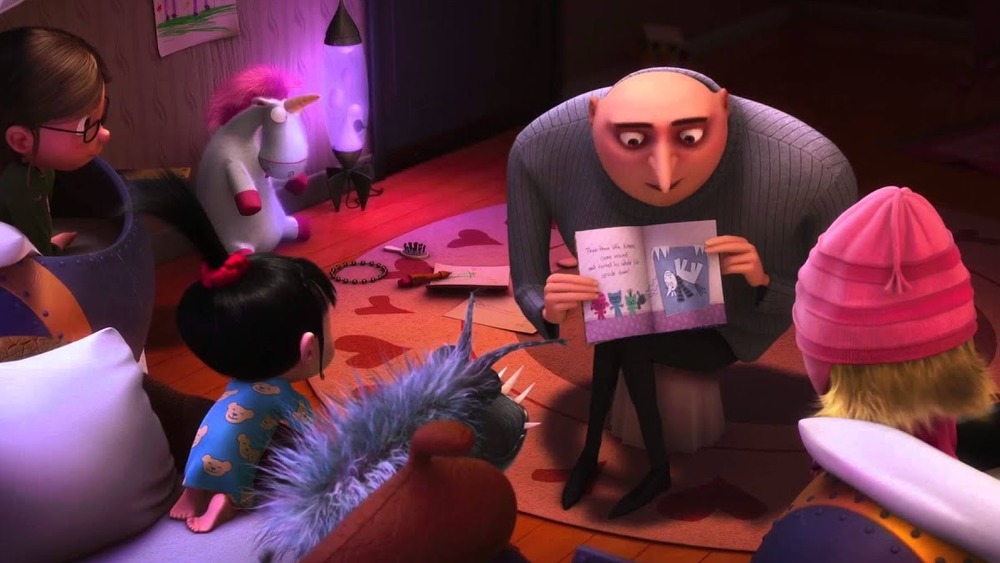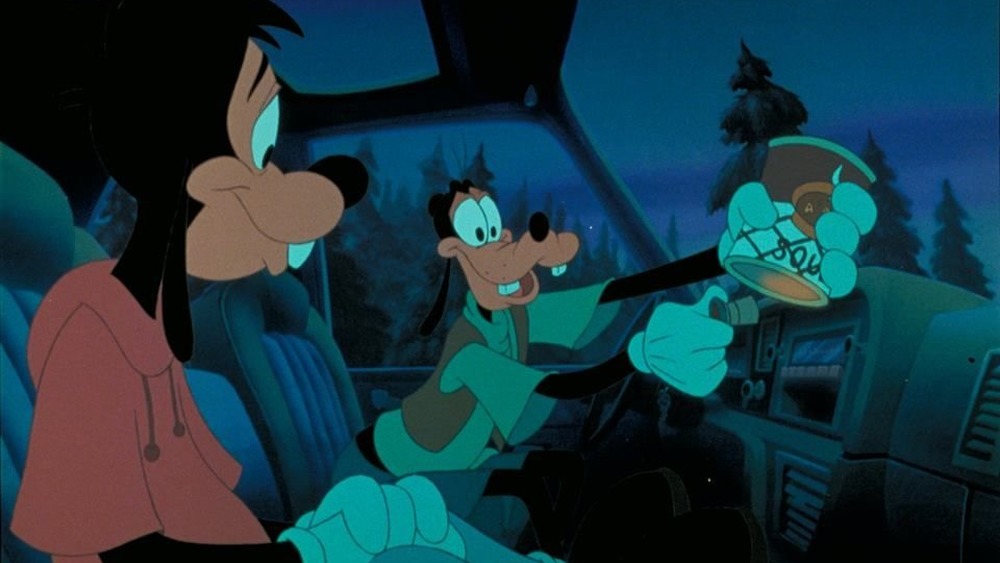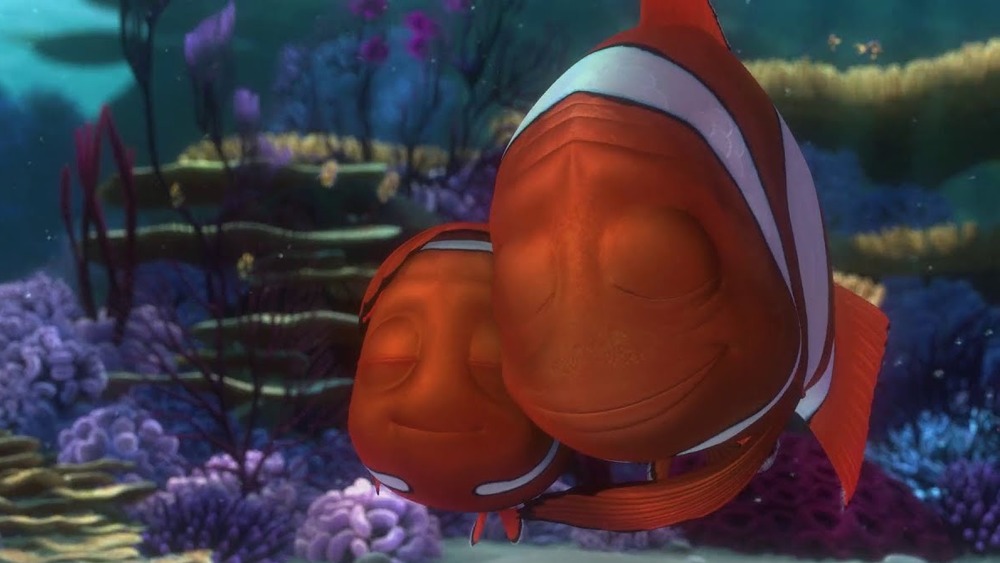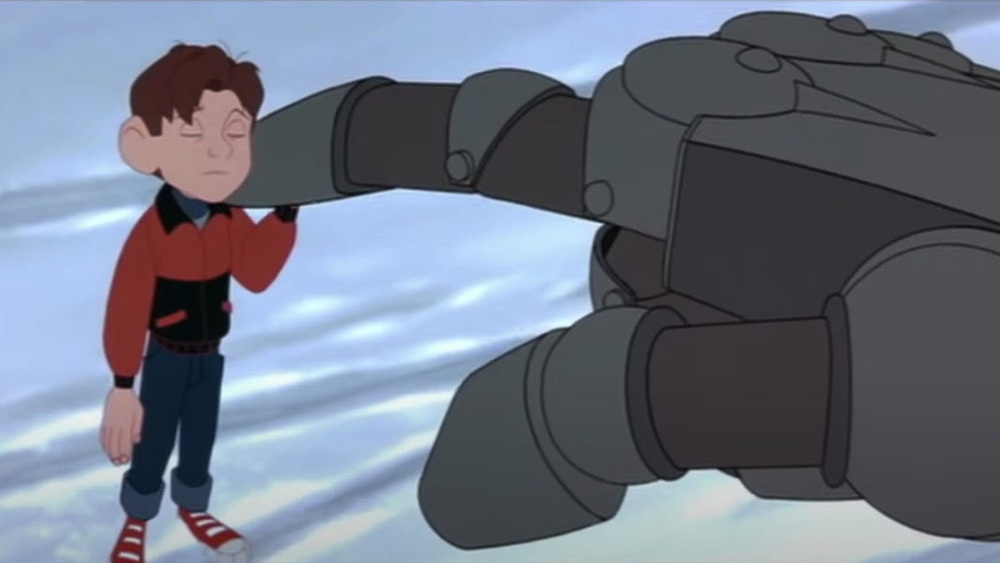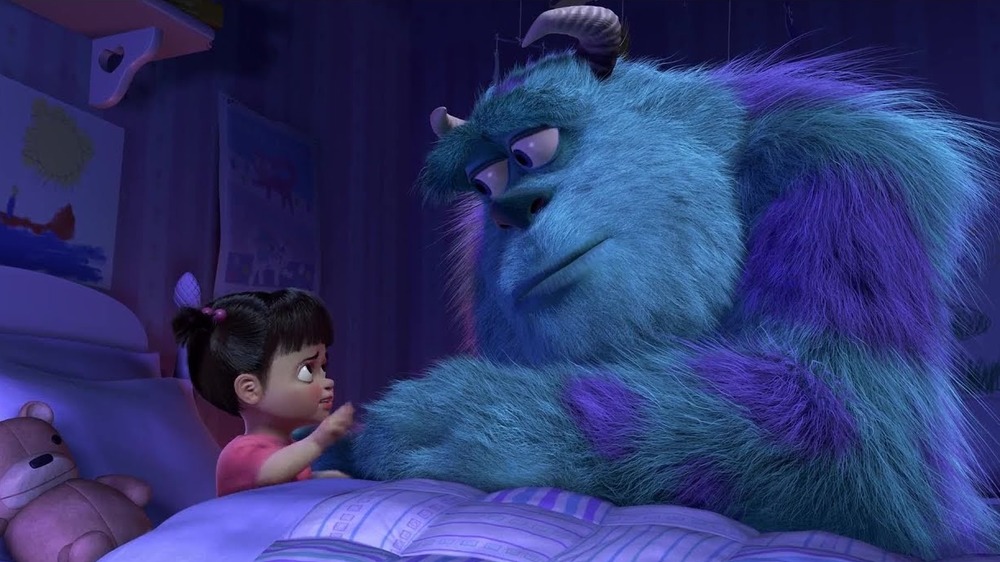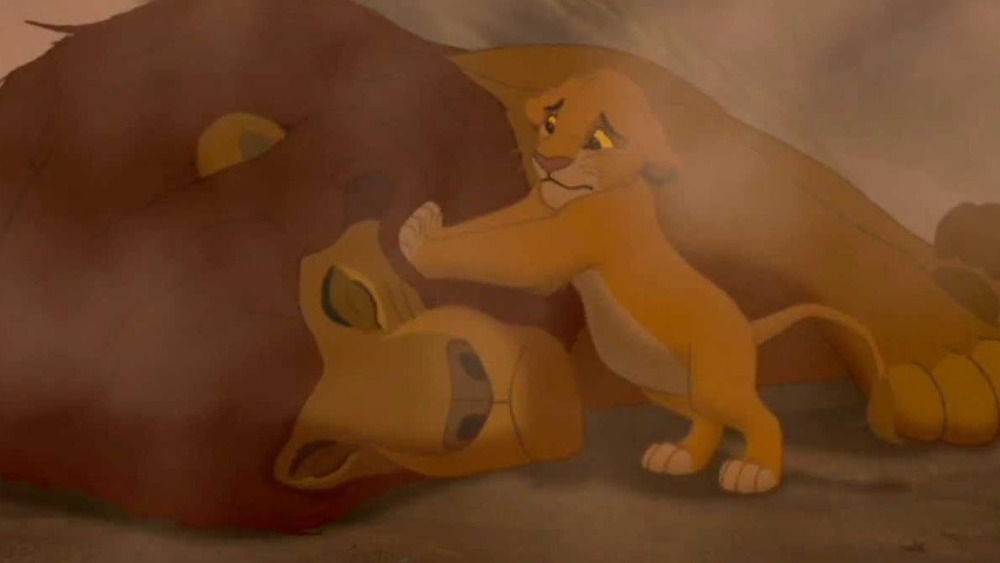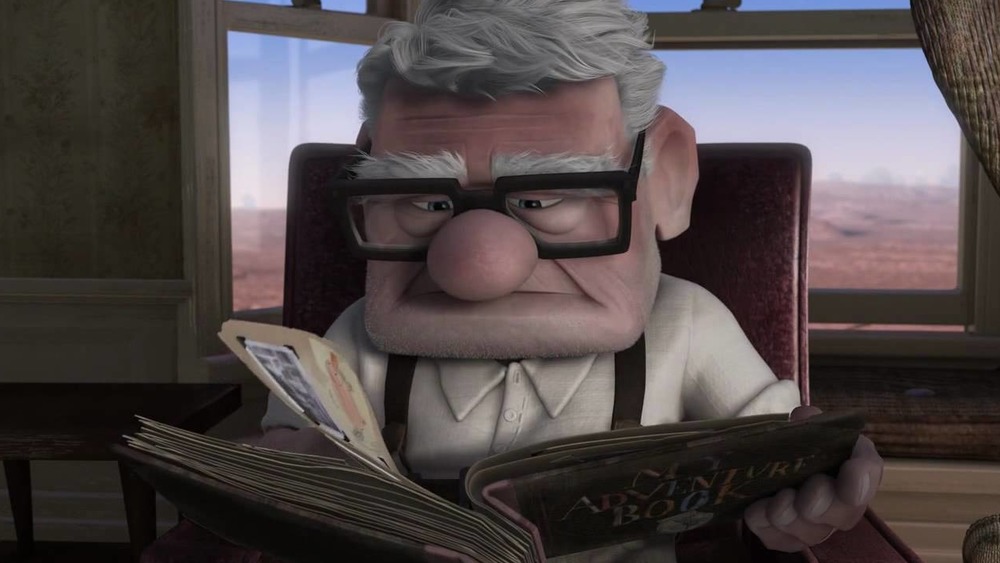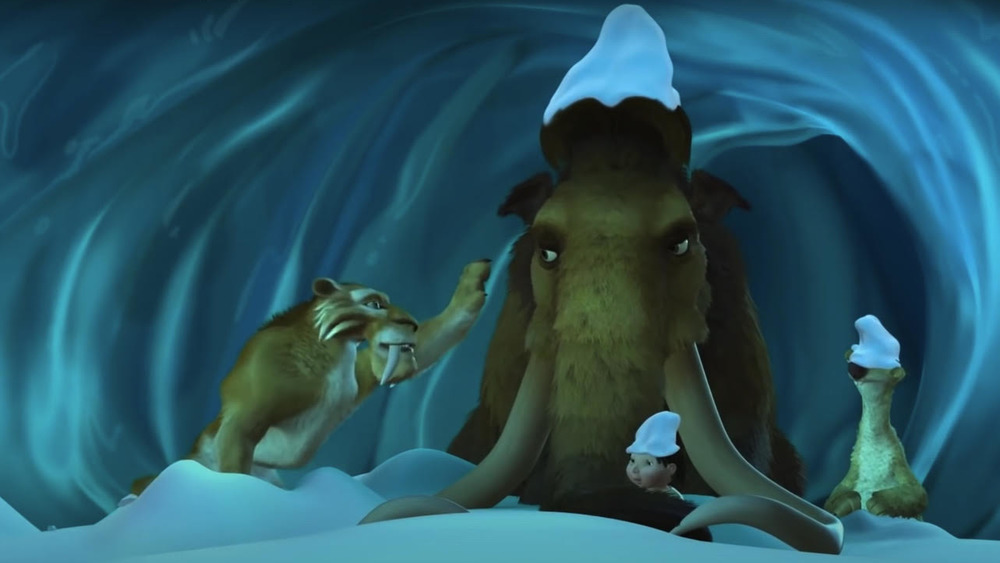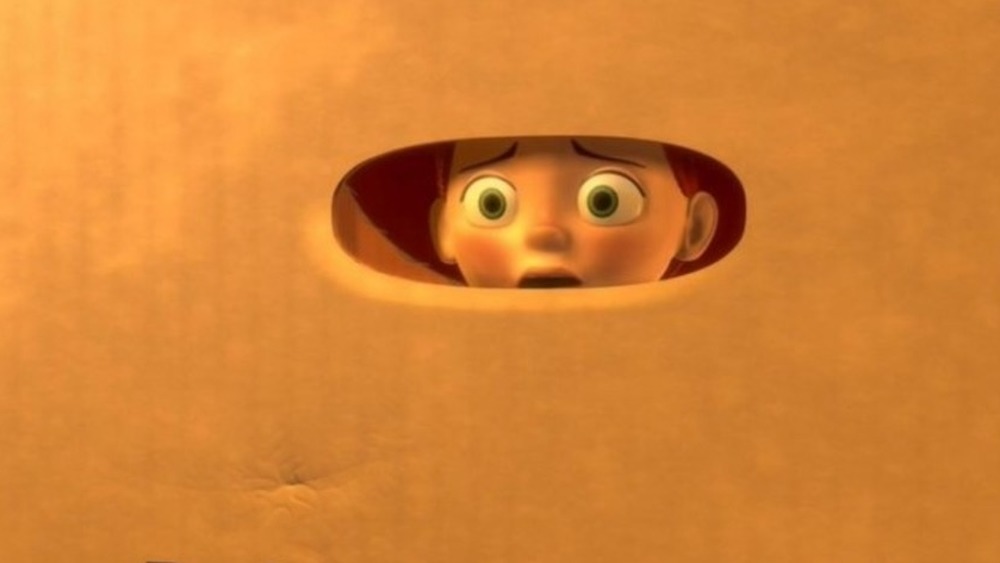The Most Tear-Jerking Moments From Animated Movies
Who says kids' movies are just for kids? As computer animation has continued to transform the Hollywood landscape over the past couple decades, so too has the general standard of what's deemed age-appropriate. Perhaps there's no better example of this than Pixar's recent production, Soul, which literally explores the idea of what happens to people when they die. Heavy stuff for a kids' flick, right?
While Soul definitely goes deeper than most, it is hardly the first kids' movie to fearlessly delve into mature notions and themes. In fact, animated movies have been delivering emotional gut-punches for years. It almost feels as though studios like DreamWorks and Pixar do their absolute best to ensure that nobody leaves the theaters without getting at least a little misty-eyed.
When speaking to HuffPost, licensed counselor Tammy Lewis Wilborn explained that crying in front of your children is not necessarily a bad thing, as it "allows kids to see that it's OK to express your feelings." In other words, there's no shame in shedding a few tears at a Disney flick. Keep that in mind as we relive some of the most tear-jerking moments from these beloved animated movies. If you need a tissue, we won't judge you.
Ralph breaks the internet, then breaks our hearts
2012's instant classic Wreck-It Ralph is Toy Story for the children of the digital age: Instead of stuffed animals and dolls leading secret lives when their humans are away, it's arcade and video game characters. Combine such a clever idea with a star-studded voice cast led by John C. Reilly and Sarah Silverman and it's easy to see why Ralph won over critics and audiences alike.
While that first film is all about Reilly's big-hearted arcade game antagonist learning to accept himself for who he is, the sequel, Ralph Breaks the Internet, teaches kids to, as Brian Tallerico eloquently puts it, "allow their friends to be true to their wants and needs as well." This is an incredibly important life lesson, which the movie explores in full by the time it reaches its emotional ending.
For Ralph, this means learning to let go of his best friend, wise-cracking young racing avatar Vanellope von Schweetz, as she "flies the coop" to join her dream game. In an all-too-relatable scene, Ralph and Vanellope share one final embrace before going their own ways, each telling the other how much they'll miss them. It's an incredibly powerful crescendo that helps explain why the top-notch sequel wrecked the box office as much as our hearts.
When Mama Coco remembers, the audience cries
2017's musical masterpiece Coco packs perhaps the hardest gut-punch of any Pixar movie to date. The film, which offers a poignant portrayal of Mexican culture, follows a wannabe child musician named Miguel as he inadvertently traverses the Land of the Dead seeking a long-lost family member. Along the way, Miguel learns that in order to save his great-great-grandfather's spirit from fading away forever, he must return to the land of the living and make his great-grandmother, the aging Mama Coco, remember her father. It all perfectly culminates in an incredibly emotional scene wherein Miguel desperately sings Mama Coco a lullaby that her father sang to her when she was a young girl.
If you found yourself tearing up during Coco's closing minutes, you're definitely not alone. The New York Times actually offers a full breakdown as to why this final scene is so heart-wrenching. They explain that it hits so hard because it gives the audience a new understanding of the lyrics to the film's Oscar-winning original song, "Remember Me". Everyone deals with loss at some point of their lives, and the power of preserved memories is a universal sensation that resonates with any viewer. When Mama Coco finally remembers her father, the audience thinks of their lost ones, too. Cue the waterworks.
There's not a dry eye in the house when Andy says farewell
Consider this: It's 1995 and you're five years old. Your parents take you to the movie theater to see a film called Toy Story, which makes you fall in love with a cowboy doll named Woody and a space ranger named Buzz Lightyear. Four years later, you're nine, and you go see your fictional friends again in Toy Story 2. Then, 11 years pass. You're now 20 years old, possibly on summer break of your sophomore year of college, and you say, "What the heck — I'll go see Toy Story 3. I loved those movies as a kid!" Little do you know you'll be leaving the theater feeling like you've just been run over by a Pizza Planet delivery truck.
So many people grew up with the Toy Story films in this fashion, and thus identify with Andy, Woody and the gang's all-grown-up owner. That's why, when he ultimately decides to donate his box of toys to the adorable Bonnie at the end of Toy Story 3, it hits everyone solidly in the feels. Andy plays with his beloved old playmates one final time, before he leaves them on Bonnie's porch and embarks upon his college journey. Wistfully, Woody says, "So long, partner" as Andy drives off into the sunset ... which causes the viewer to say "so long" to the idea of not bawling during a kids' movie.
Despicable Me has a surprisingly emotional ending
2010's Despicable Me was a bit of a surprise success. Who could've guessed that Steve Carell's goofy family flick would dominate the box office, get nominated for a Golden Globe, spawn one of the most successful animated franchises of all time, and give the world a pop culture craze like the inescapable Minions? Perhaps the biggest surprise of all, however, is the movie's incredibly touching ending.
Steve Carell voices Gru, a self-proclaimed criminal mastermind who "adopts" three young girls to help him best his rival. However, Gru quickly learns that parenthood isn't as easy as he had anticipated. He's initially reluctant to warm to his newfound role, refusing to show the kids affection. But over the course of the film, they slowly begin to change him from super-villain to super-dad. It all builds up to the movie's final scene, wherein Gru reads the children a self-written kids' book about how they have made his life complete. When he kisses them each goodnight, it's hard for even the most diabolical super-villain to hold it together.
A Goofy Movie will have you crying into the Hi Dad Soup
Although it never received the widespread notoriety of other timeless '90s Disney films, A Goofy Movie is a masterpiece in the House of Mouse's ever-expanding catalog. Rafael Motamayor of Rotten Tomatoes dubs it "a moving, joyous, small-scale gem," which is a pretty accurate description of the lovably quirky coming-of-age father-son tale.
After Max lands in some trouble at school, a concerned Goofy desperately seeks ways to reconnect with his son. His solution? A cross-country road trip for a father-son fishing experience at Lake Destiny, Idaho, the same place that Goofy's dad took him when he was a kid. As those with teenage children can probably attest to, this "great idea" does not go over well with young Maxy, and he's basically an angsty grump for the first half of the trip.
But when a ridiculously chance encounter with Bigfoot leaves the duo locked in their car for a night, Max and Goofy finally connect with an old pastime of theirs: Making "Hi Dad Soup," which is just alphabet soup that Max used to spell out words in, like "Hi Dad," "Bye-bye," or, gulp, "I love you," back when he was a kid. Max doesn't seem to remember, but before they fall asleep, he writes out "Hi Dad" in his cup and passes it to his father, who blinks back tears. He may be Goofy, but the emotions portrayed in this scene are anything but.
Good luck holding back tears when Marlin finally learns to let Nemo go
When appearing on Late Night with Seth Myers, Dead to Me starlet Linda Cardellini admitted that she is no stranger to crying while watching animated movies: "I cry a lot ... I cried so hard during Finding Nemo ... that somebody asked me if I needed to leave!" If you've ever seen Finding Nemo, you know that Cardellini probably isn't the only one who needs a box of tissues to get through it.
After a devastating barracuda attack leaves Marlin, a worry-wart clownfish, widowed in the film's opening scene, he vows to never let anything happen to his lone surviving son, Nemo. However, as Nemo grows up, he yearns to experience life and all that the world has to offer, which is how he winds up getting caught by a diver while swimming in open water. Desperate, Marlin embarks on an ocean-spanning trek to find his son and return him to safety. Along the way, he learns that although the world can be a dangerous place, there's beauty in it, too.
Marlin eventually finds Nemo, and the two return to their home on the reef. But, as the film's final scene establishes, things are different now. Marlin has learned to let his son take risks, no matter how much it scares him. When Nemo comes back for one final hug, telling his dad he loves him, the viewer is swimming in a sea of tears.
The Iron Giant's sacrifice gives us all the feels
Although it has evolved into a fan-favorite movie over the years, The Iron Giant actually bombed at the box office when it was released in 1999. The film follows a young boy named Hogarth who becomes unlikely friends with a giant alien robot he struggles to keep secret from the US military. With a tremendously talented voice cast consisting of Jennifer Aniston, Harry Connick Jr., Vin Diesel, and the late Cloris Leachman, this animated classic was truly ahead of its time.
Its director, Brad Bird (who went on to win two Academy Awards for The Incredibles and Ratatouille), has some idea as to why the flick flopped: "I'll take part ownership in pushing it out into the world too soon ... All the calculations were that if we had $8 million on the opening weekend, word of mouth would carry it the rest of the way. It made $5 million, and we were DOA."
Regardless of the financial outcome, you can't deny that the movie has heart, as evidenced by its incredibly moving final scene. In an attempt to destroy the giant robot after witnessing his advanced weaponry, the army launches a nuclear missile that will kill not only the giant, but everyone in town. Realizing it's the only way to keep everyone safe, the giant launches himself, Superman-style, into space, and intercepts the missile. His sacrifice to protect his best friend is a tear-jerking moment indeed.
We bawled at Boo's bye-bye
Animated movies have come a long way over the past few decades. Traditional two-dimensional cartoons have given way to ever-enhancing CGI animation. While some may yearn for the drawings of yesteryear, there are certainly perks to using this new technology. One of which is that you can really add an extra dose of cuteness to a character, making them irresistibly adorable.
This is exactly what Pixar accomplished when they created Boo, the lovable little girl who inadvertently traverses the city of Monstropolis in 2001's Monster's Inc. In a strange world where she is deemed dangerous, Boo finds herself in the care of monster "scarer" James P. Sullivan and his pal, Mike Wazowski. The duo does their best to secretly return Boo to her home, but her rambunctious energy and giggly outbursts make it a very difficult task. She is, in short, a very realistic depiction of a toddler.
Perhaps this is why the film's ending is so sad. Sully finally manages to get Boo back home, but she doesn't understand why "Kitty," her nickname for him, has to leave. The two share an extremely touching farewell, and then Sully returns to his world. Boo hops out of bed and tries to follow, but when she opens her closet door, it's just filled with clothes. It's the kind of scene that makes you want to hug your kid and not let go.
Mufasa's death still makes kids and adults misty-eyed
Disney movies are largely assumed to be lighthearted kiddie flicks for a younger generation. But don't let that fool you. Over the years, Disney's animated classics have not shied away from killing off characters, often traumatizing kids and adults alike. Arguably their most heartbreaking scene of all time came in 1994's Oscar-winning film, The Lion King.
If you've seen the timeless classic (which, if you haven't, why not!?), you probably already know the scene we're referring to: Mufasa's death. In the film, Mufasa, the king of the Pride Lands, sacrifices himself to save his young cub, Simba, from a stampede of wildebeests orchestrated by his nefarious brother, Scar. It's a truly unforgettable scene, capped off with a perfectly sad score to accompany what happens on screen. When Simba desperately tries to wake his father, slowly coming to the realization that he's gone forever, it's hard to hold back tears.
Ellie's secret note tears us Up
The opening montage of Pixar's Up is nothing short of devastating. The film immediately gets the viewer invested in Carl and Ellie, who fall in love as children and grow old together. The audience sees them deal with incredible highs and crippling lows — such is the universal journey of life. As the two become grey-hairs, Ellie gets sick and eventually passes away, leaving her lonely husband to mourn her. The opening credits have hardly finished rolling, and there's not a dry eye in the house. What a way to start a movie!
While everyone always cites the film's first 10 minutes as its most tear-jerking scene, there's actually a sequence towards the end of the movie that is somehow even more emotional. Finally settled atop Ellie's dream destination, Paradise Falls, Carl sadly sifts through the "Stuff I'm Going to Do" section of his wife's old "adventure book." As he goes to shut the book, however, he notices that Ellie had actually filled in the blank pages with pictures of her life with Carl and a scribbled secret note: "Thanks for the adventure — now go have a new one!" Carl cries, realizing that his wife was more than satisfied with their life together, and the audience does, too.
The ending of Ice Age will melt you
It's all too easy to forget just how great Blue Sky Studios' Ice Age actually is. It was even nominated for Best Animated Feature Film at the 2003 Oscars, which ultimately went to Studio Ghibli's Spirited Away. With a core voice cast made up of Ray Romano, John Leguizamo, and Denis Leary, it's not hard to see why this animated comedy sparked an animated franchise and four sequels.
In the film, Manny, a wooly mammoth, Sid, a sloth, and Diego, a saber-toothed tiger, band together to return a human baby to his family. The unlikely trio are plagued by an onslaught of obstacles, but they eventually manage to return the child to his human father. When Manny, whose own family was slaughtered by humans, shares a touching moment as he says goodbye to the kid, it really does make it hard not to get emotional.
Jesse's song has us all sobbing
You know those ASPCA commercials that play image after image of hurt dogs and cats while Sarah McLachlan's haunting voice plays in the background? It's almost as if Toy Story 2 director John Lasseter gathered that incredibly sad energy, refined it into its purest form, then smeared it all over the big screen in the scene depicting Jessie's origin story.
Set to Randy Newman's Oscar-nominated original song, "When She Loved Me," also sung by McLachlan, the sequence reveals that Jessie, one of Woody's new friends, once belonged to a child named Emily. The audience watches as Emily grows up, as all children inevitably do, and leaves behind her childhood doll. When she eventually finds her dust-covered toy under her bed, Emily donates her to charity, which, of course, breaks Jessie's heart. It's a tough scene that is made even worse by that gosh-darn Sarah McLachlan and her heavenly vocal abilities!
